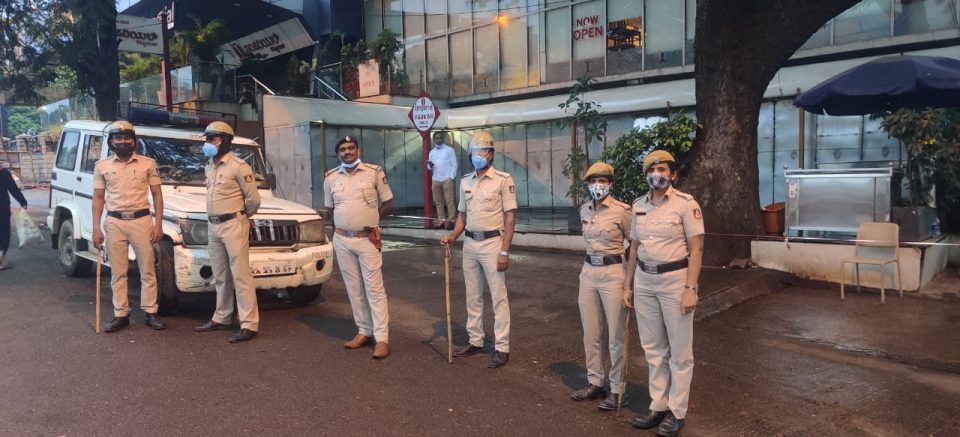
Karnataka move to port police numbers to Jio raises questions on info safety

The Karnataka government’s decision to change the service provider of the Closed User Group (CUG) SIM cards of its police department from the state-owned BSNL to Reliance Jio has generated a controversy.
Karnataka Police has around 38,347 active connections, and these connections are now being ported to the Mukesh Ambani-owned Reliance Jio Infocomm. The porting process has already started.
A circular issued by the office of the Additional Director General of Police (Communication, Logistics and Modernisation) states that the government has approved the change of service provider of the existing CUG/Beat SIM cards from BSNL to Reliance Jio, and a work order has been issued to Reliance Jio Infocomm Limited in this regard.
Though ADGP (CLM) S Murugan told the media that the decision was based on reduced tariffs and taken to get quality service and improved technology, the move has raised questions within the department itself.
The question of sensitive information
Some senior officials feel that the step was unnecessary, as the department handles a lot of sensitive information, and the police network being under the control of private companies is undesirable.
A senior officer of the Karnataka State Intelligence, requesting not to be named, claimed the present government says “yes” to any instruction coming from Delhi and has taken a dangerous step, where a private service provider will handle the network.
Another area of concern is that this move indirectly violates the Official Secrets Act, he pointed out. There are bound to be some black sheep in all departments, which can prove dangerous for secret services of the police department, he added.
Also read: Jio 5G across India by Dec 2023: Mukesh Ambani
Another senior official in the Bengaluru Police Commissionerate agreed that it was indeed a matter of concern. “Unscrupulous elements can easily get information by hacking into private numbers. Government services like BSNL cannot be easily accessed without help from an insider. But it can be easily monitored, unlike private service providers,” he added.
“There have been several incidents of hackers accessing personal information of politicians and senior officials and spreading it through social media. To my knowledge, such incidents happen when hackers and some private detective services use private agencies (to gain access to such data). It is a cause for concern, as we have witnessed such instances in Karnataka,” he added.
“BSNL is a government-run PSU, and certain procedures, such as storing call records of criminals, etc., are followed. Even sensitive issues were handled professionally, following legal and official parameters, and it was not easy to violate the norms. Now it will be easy to misuse,” he believes.
The intelligence official claimed that the issue was discussed with the state Home Ministry and a few officials raised these concerns. But the government’s decision could not be changed, the official said.
BSNL Employees’ Union writes a letter
On the other hand, the BSNL Employees’ Union has written to the Union Minister of Communication Ashwini Vaishnaw about the Karnataka government‘s decision to shift its connections from the BSNL network to Reliance Jio, seeking his intervention to stop the process.
P Abhimanyu, the General Secretary of BSNLEU, wrote in his letter to Vaishnaw, “It is shocking to know that the state government of Karnataka has decided to migrate its mobile, landline, leased circuits, etc., from BSNL’s networks to Reliance Jio’s networks. This step of the state government of Karnataka is against the decision of the central government, which has directed all state governments to utilise the services of BSNL.”
Also read: Reliance Jio launches 5G services in Rajasthan
A Home department officer justified the decision, saying it was to help the policemen during emergencies, when they need a good network. “Policemen working mainly in rural areas always face network problems. The police need to share important documents, locations, and other data to speed up the investigation, and the BSNL network does not support all that. BSNL is still working with 3G service, whereas private service providers offer 4G and even 5G facilities,” he argued. “Jio network has been selected following the KTPP (Karnataka Transparency in Public Procurement) Act,” he claimed.
Other govt departments making the move
Karnataka Police is not the first government agency to tread this path. Many central government departments, including Indian Railways, and Telangana Police have already switched to Reliance Jio or are in the process of doing so. Now it is the turn of Karnataka Police, said Gundanna CK, General Secretary of BSNL Employees’ Association (Karnataka).
He alleged that the Centre is trying to shut down the PSUs and help the private sector. Recently, the Voluntary Retirement Scheme (VRS) has been introduced in BSNL, under which nearly 80,000 employees have stepped down. The organisation is now facing a shortage of human resources. The government is not interested in upgrading BSNL infrastructure to provide 4G services, but is auctioning 5G spectrum to private companies, he argued.
Also read: Remember Kerala floods and what BSNL did: AITUC slams Telecom Minister
He, too, questioned how the government could port police numbers to a private agency when the department deals with highly sensitive data. How does the government feel the service is safer under private service providers compared to the government-run BSNL, he asked.
While Karnataka and Telangana have decided to port their BSNL connections to private service providers, mainly Jio, Tamil Nadu and Kerala have not done it simply to be careful with sensitive information.
“In Tamil Nadu, except for the police, no other government department uses BSNL mobile services,” said S Chellappa, Assistant General Secretary of the national-level BSNL Employees’ Union. “Tamil Nadu Police have been using BSNL mobile connections from the beginning. But other departments have been using private connections all through,” he added.


